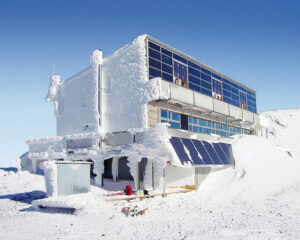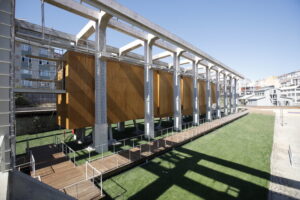For more than 10,000 years (or, since the Stone Age), wood has been an integral part of construction around the world. It is valued for its versatility, with external and internal uses as infinite as the mind can imagine.
Of course, wood is a natural form so it is subject to degradation and impact from the elements, which can result in rotting, cracking, erosion and the loss of physical properties. For years, scientists have explored ways to make it more durable and therefore sustainable to lengthen its lifespan as a construction material.










